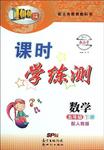ÌâÄ¿ÄÚÈÝ
¡¾ÌâÄ¿¡¿Rae Armantrout, who has been a poetry professor at the University of California San Diego (UCSD) for two decades, has won the 2010 Pulitzer Prize in the poetry category for her most recent book, Versed.
¡°I¡¯m delighted and amazed at how much media recognition that the Pulitzer brings, as compared to even the National Book Critics Award, which I was also surprised and delighted to win,¡± said Armantrout.
¡°For a long time, my writing has been just below the media radar, and to have this kind of attention, suddenly, with my 10th book, is really surprising.¡±
Armantrout, a native Californian, received her bachelor¡¯s degree at UC Berkeley, where she studied with noted poet Denise Levertov, and her master¡¯s in creative writing from San Francisco State University. She is a founding member of Language Poets, a group in American poetry that analyzes the way language is used and raises questions to make the reader think.
In March, she won the National Book Critics Circle Award for Versed.
¡°This book has gotten more attention,¡± Armantrout said, ¡°but I don¡¯t feel as if it¡¯s better.¡±
The first half of Versed focuses on the dark forces taking hold of the United States as it fought the war against Iraq. The second half looks at the dark forces casting a shadow over her own life after Armantrout was diagnosed with cancer in 2006.
Armantrout was shocked to learn she had won the Pulitzer but many of her colleagues were not. ¡°Rae Armantrout is a unique voice in American poetry,¡± said Seth Lerer, head of Arts and Humanities at UCSD.
Versed, published by the Wesleyan University Press, did appear in a larger printing than her earlier works, which is about 2,700 copies. The new edition is scheduled to appear in May.
¡¾1¡¿Which of the following is true of Rae Armantrout?
A. She published a poetry textbook.
B. She used to teach Denise Levertov.
C. She started a poets¡¯ group with others.
D. She taught creative writing at UC Berkeley.
¡¾2¡¿According to Rae Armantrout, __________.
A. her 10th book is much better
B. her winning the Pulitzer is unexpected
C. the media is surprised at her works
D. she likes being recognized by her readers
¡¾3¡¿Rae Armantrout¡¯s colleagues think that she __________.
A. deserves the prize B. should write more
C. has a sweet voice D. is a strange professor
¡¾4¡¿What can we learn about Versed?
A. It consists of three parts.
B. It is mainly about the American army.
C. It is a book published two decades ago.
D. It partly concerns the poet¡¯s own life.
¡¾´ð°¸¡¿
¡¾1¡¿C
¡¾2¡¿B
¡¾3¡¿A
¡¾4¡¿D
¡¾½âÎö¡¿
ÊÔÌâ·ÖÎö: ±¾ÎĽéÉÜÁËÆÕÀû²ß½±»ñµÃÕßRae Armantrout¶ÔÓÚ×Ô¼ºÄܹ»»ñµÃÕâ¸ö½±¸Ðµ½ºÜÒâÍ⣬ÎÄÕÂÖл¹Ìá¼°ÁËÆäËûÈ˶ÔÓÚÕâ¸öÊÂÇéµÄ¿´·¨
¡¾1¡¿Cϸ½ÚÀí½âÌâ¡£¸ù¾ÝµÚÈý¶ÎShe is a founding member of Language Poets, a group in American poetry that analyzes the way language is used and raises questions to make the reader think.˵Ã÷ËýÊÇÕâ¸ö×éÖ¯µÄµì»ùÕßÖ®Ò»£¬Õâ¸ö×éÖ¯ÊÇËýºÍ±ðÈËÒ»Æð½¨Á¢µÄ£¬¿ÉÖªCÏîÕýÈ·¡£
¡¾2¡¿Bϸ½ÚÀí½âÌâ¡£¸ù¾ÝÎÄÕÂÖеĵ¹ÊýµÚ¶þ¶ÎArmantrout was shocked to learn she had won the Pulitzer but many of her colleagues were not.¿ÉÖªËý¶ÔÓÚ»ñ½±¸Ðµ½ºÜ³Ô¾ª£¬ËùÒÔBÏîÕýÈ·¡£
¡¾3¡¿Aϸ½ÚÀí½âÌâ¡£¸ù¾ÝÎÄÕÂÖеĵ¹ÊýµÚ¶þ¶ÎArmantrout was shocked to learn she had won the Pulitzer but many of her colleagues were not.¿ÉÖªËý¶ÔÓÚ»ñ½±¸Ðµ½ºÜ³Ô¾ª¶øËûµÄͬÊÂÈ´²»ÊÇÕâÑù¿´£¬¹ÊAÏîÕýÈ·
¡¾4¡¿DÍÆÀíÌâ¡£¸ù¾ÝÎÄÕµڶþ¶Î¡°I¡¯m delighted and amazed at how much media recognition that the Pulitzer brings, as compared to even the National Book Critics Award, which I was also surprised and delighted to win, ¡±¿ÉÖªËýÓ®µÃÁËthe National Book Critics AwardºÍthe Pulitzer£¬¹ÊDÕýÈ·

 °ÙÄêѧµä¿ÎʱѧÁ·²âϵÁдð°¸
°ÙÄêѧµä¿ÎʱѧÁ·²âϵÁдð°¸